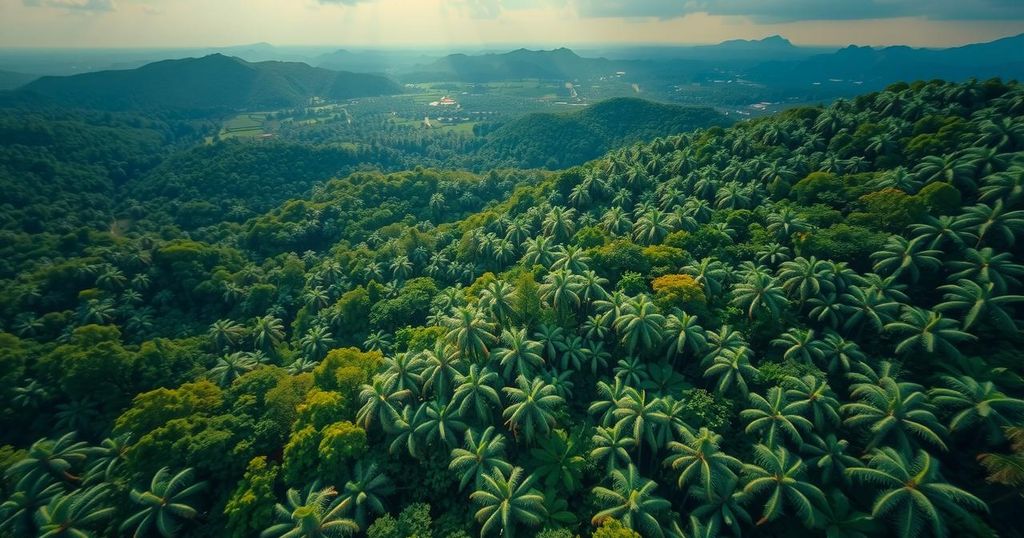A modelling study indicates that by 2100, climate change may render up to 94% of Amazonian land unsuitable for the Brazil nut tree. Analyzing four climate scenarios, the study emphasizes the need for conservation efforts to address the severe implications for this critical species and its ecosystem in the Amazon region.
A recent modelling study highlights the severe impact of climate change on the Brazil nut tree, predicting that as much as 94% of the Amazon rainforest may become unsuitable for this species by the year 2100. This assessment utilized four distinct climate scenarios to determine future habitat viability, indicating a potential crisis for both ecological balance and local economies dependent on Brazil nuts. The study sheds light on the urgent need for conservation strategies to mitigate these anticipated changes in the Amazon.
The Brazil nut tree holds significant ecological and economic importance within the Amazon rainforest ecosystem. It not only provides vital habitat for various species but also contributes to local livelihoods through nut production. However, climate change poses a substantial threat to its survival, as rising temperatures and shifting precipitation patterns may affect the growth conditions required for this tree. Understanding the future climate scenarios allows for better preparation and intervention strategies to protect this vital species and the biodiversity associated with it.
In conclusion, the modelling study presents a stark warning regarding the future of the Brazil nut tree in the Amazon. With projections suggesting that up to 94% of its habitat could become unsuitable by 2100, it is imperative to implement conservation measures aimed at preserving both the tree itself and the broader ecological framework of the region. This research serves as a crucial call to action for environmental stewardship in the face of inevitable climate changes.
Original Source: www.eurekalert.org






